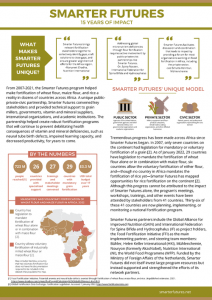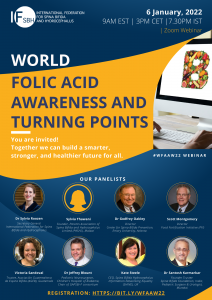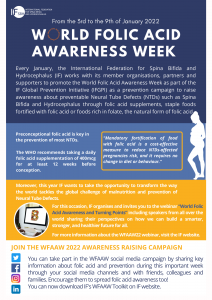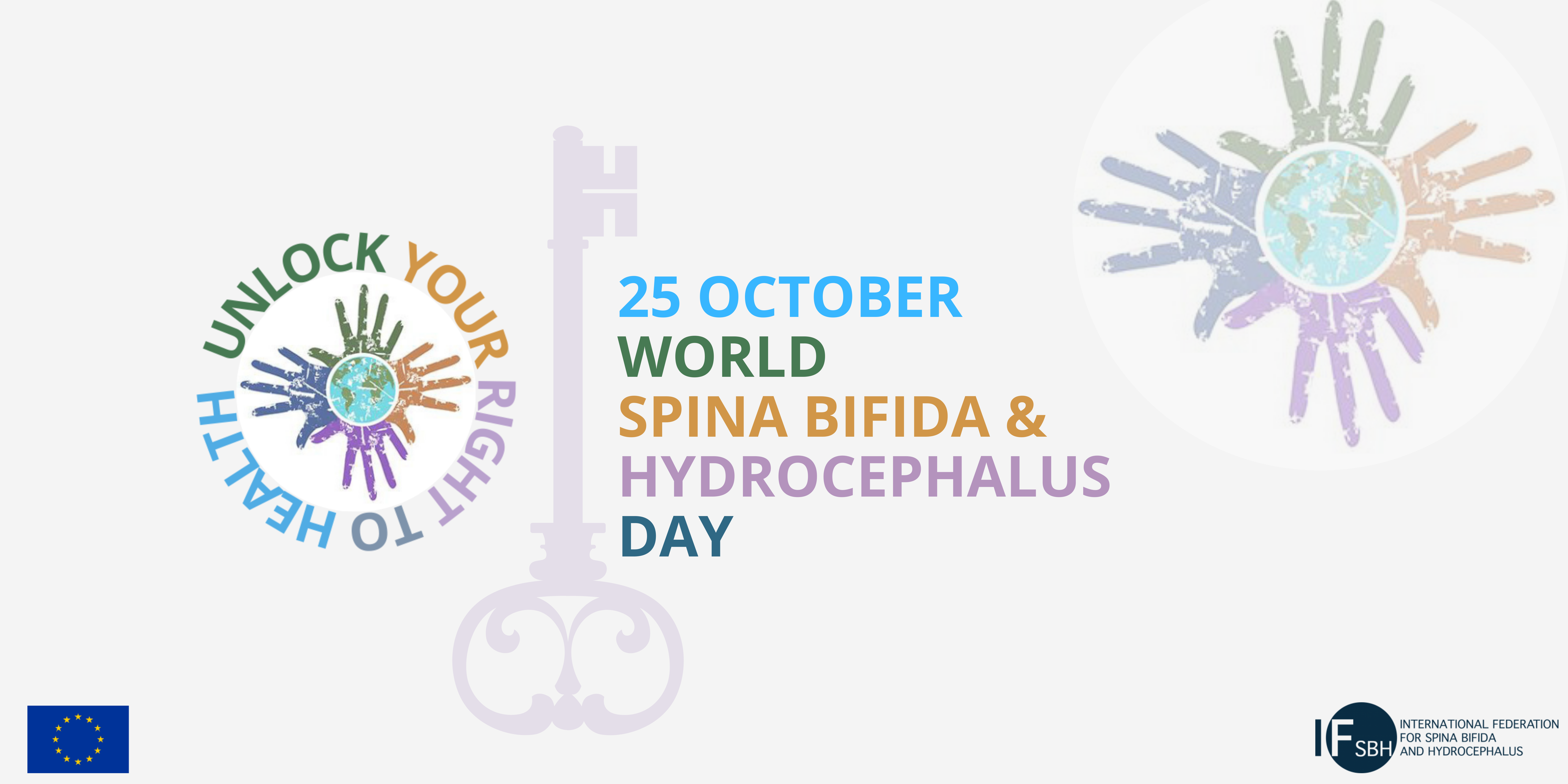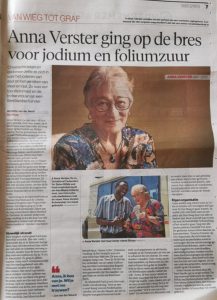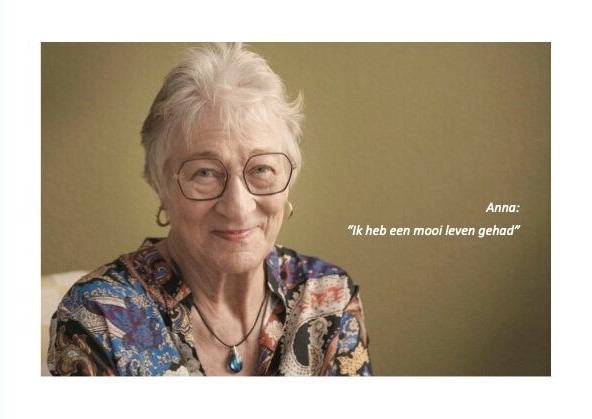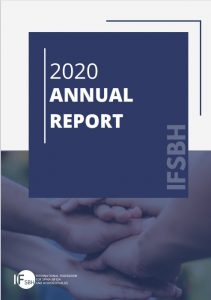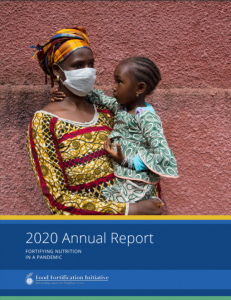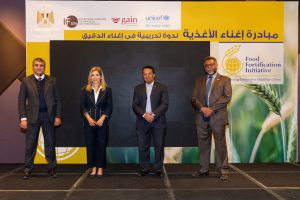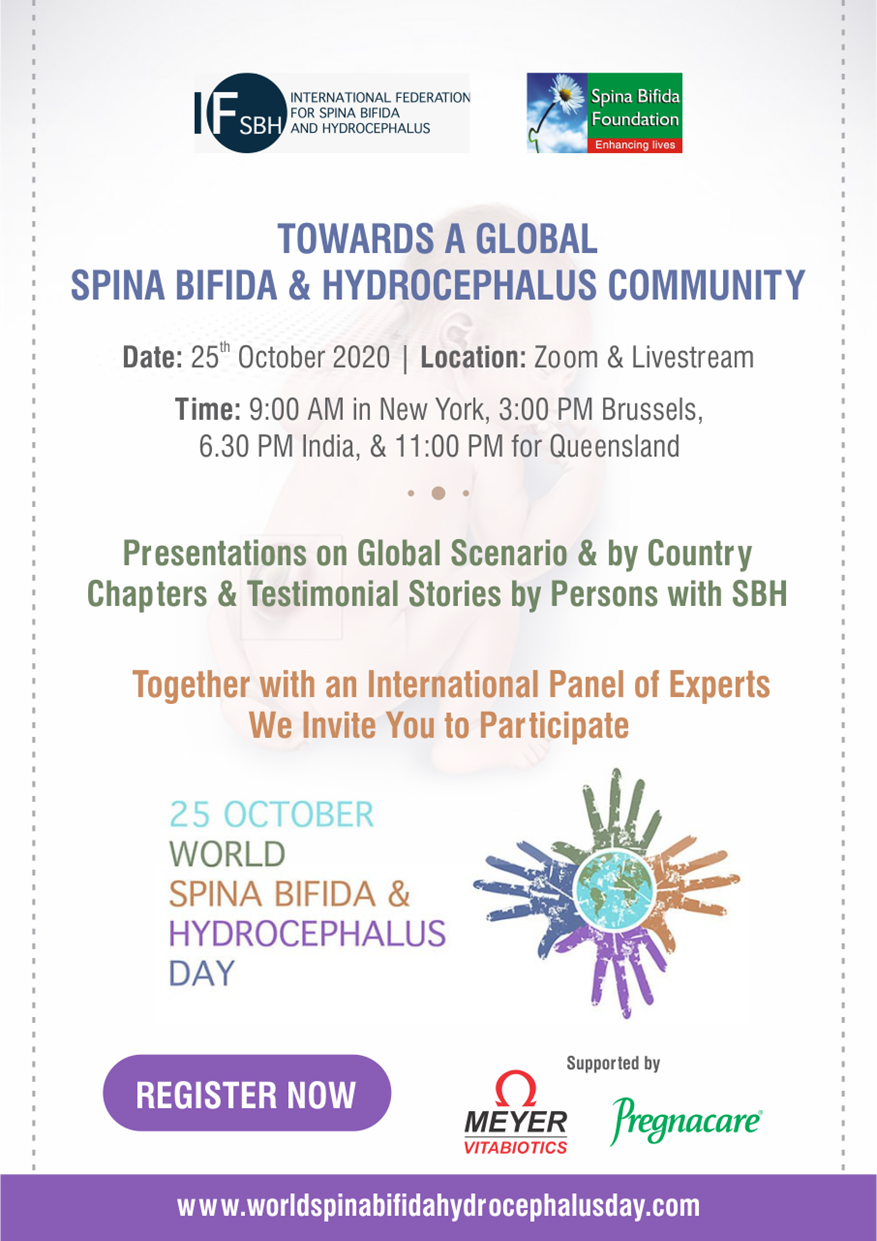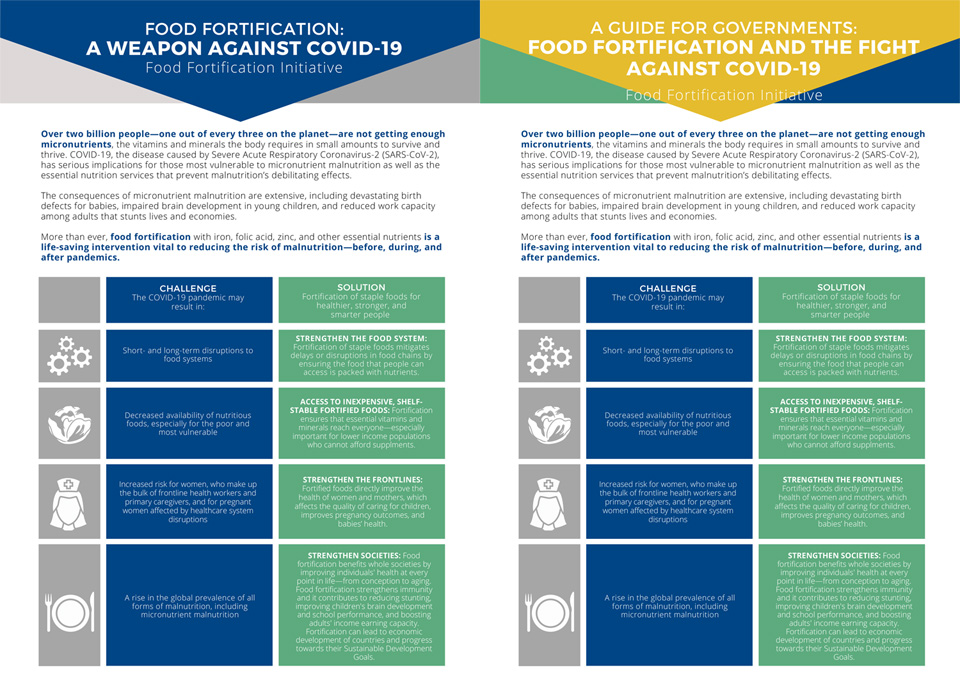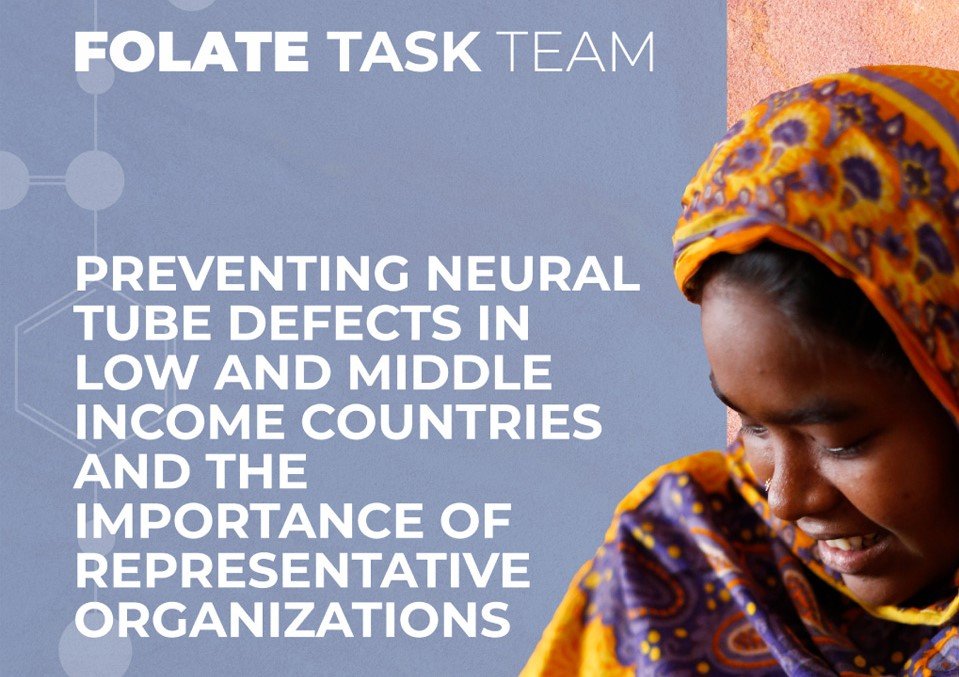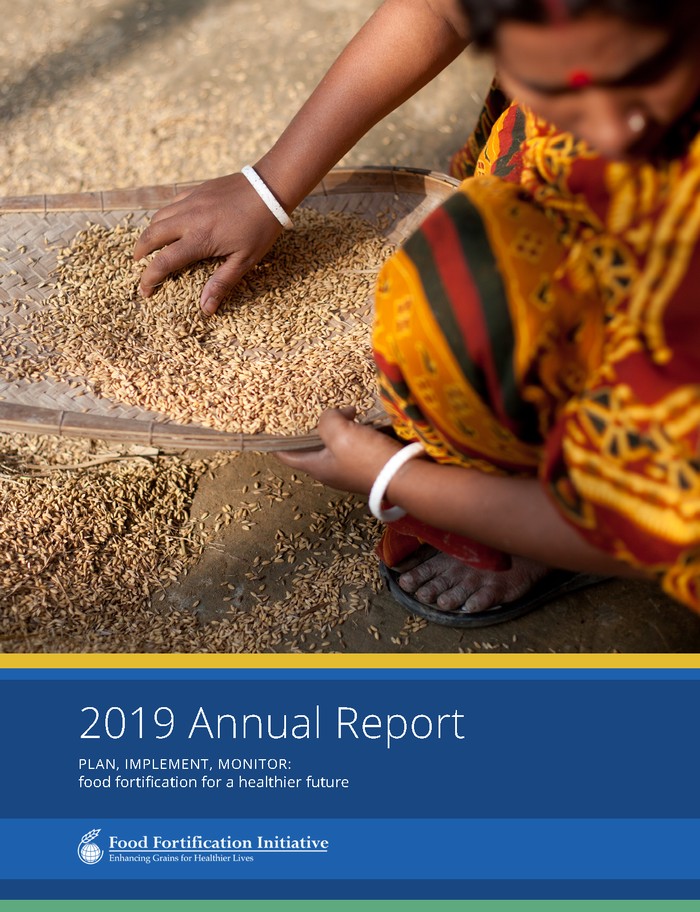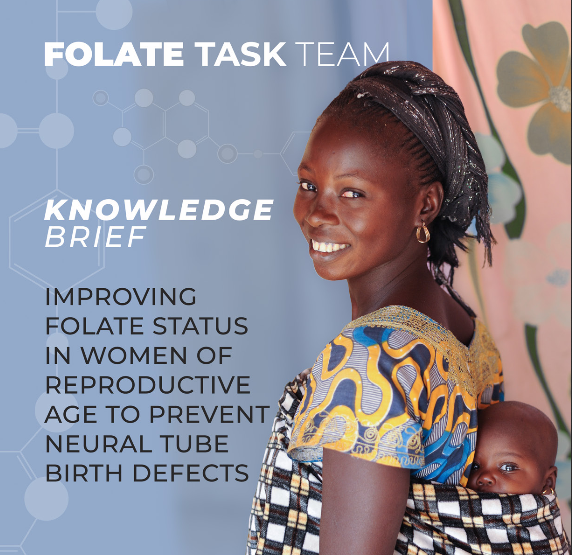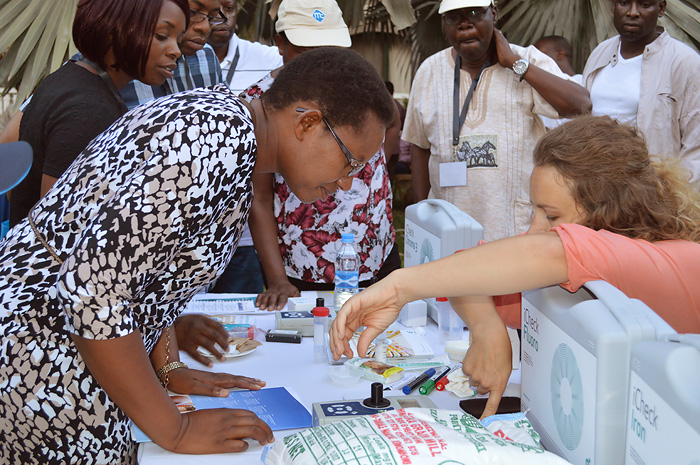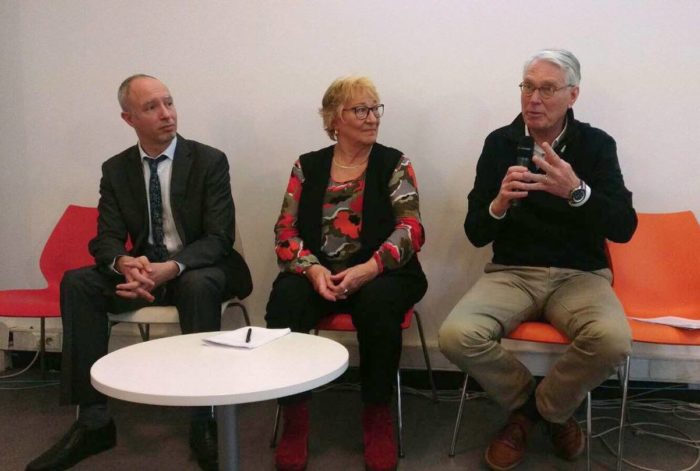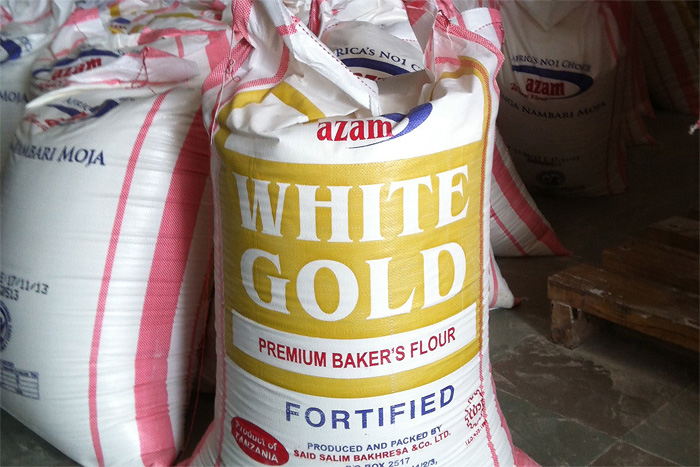- | November 13 2025 |
In Memoriam: Philip Randall
We are saddened by the passing of Philip Randall, a respected expert in staple food fortification. Based in South Africa, Philip worked across Africa, the Middle East, and Central Asia with UNICEF, WHO, WFP, and national governments, helping implement programs for wheat flour, maize flour, vegetable oil,
and salt.
Philip’s technical expertise and dedication to improving nutrition supported the mission of Smarter Futures, helping build healthier, more resilient communities. He will be deeply missed by colleagues and friends around the globe.
- | February 2022 |
From 2007-2021, Smarter Futures has worked together with flour millers, governments, vitamin and mineral suppliers, international organizations, and academic institutions to make fortification of wheat and maize flour a reality in Africa. This public-private-civic partnership is also called Smarter Futures.
Smarter Futures brings together the milling industry, governments, and development partners to support the implementation of national flour fortification programs and aims to improve the nutritional quality of wheat and maize flour in Africa. We do this by providing training to millers, regulatory inspectors, program managers, and regional and international agencies on quality assurance and quality control, monitoring and surveillance, cost-benefit analyses, and fortification advocacy. This is of course not only relevant for Africa, but can also be applied elsewhere.
The success of Smarter Futures has been significant. Over the first 15 years of Smarter Futures’ existence, 41 countries in Africa have participated in its workshops, trainings, meetings and other events. Of these countries, 29 (70% of all countries in Africa) now have legislation to mandate the fortification of wheat flour alone or in combination with maize flour, while another six countries allow the voluntary fortification of either flour, and – though no country in Africa mandates the fortification of rice yet, we mapped opportunities for rice fortification. Six countries do not (yet) have fortification, but about half of them are planning to do so in the near future.
Tremendous progress has been made across Africa since Smarter Futures began. Read the report to learn more about Smarter Futures 15 years of impact here.
- | December 2021 |
In preparation for the upcoming year Smarter Futures’ partner the International Federation for Spina Bifida and Hydrocephalus (IF) organizes its yearly awareness week for primary prevention of NTDs during the World Folic Acid Awareness Week. The World Folic Acid Awareness Week takes place from January 3 to 9, 2022.
This campaign aims at raising awareness about preventable Neural Tube Defects (NTDs) such as Spina Bifida and Hydrocephalus through folic acid supplements, staple foods fortified with folic acid or foods rich in folate, the natural form of folic acid.
The partners of Smarter Futures work on prevention through food fortification and invites you to attend the Webinar World Folic Acid Awareness and Turning Points on January 6 2022 with panelists from around the world to build a smarter, stronger, and healthier future for all. On behalf of the Smarter Futures partnership Scott Montgomery (Director of Food Fortification Initiative) will share reflections on the African way to promote food fortification to help prevent Neural Tube Defects. Registrations are open here.
As in previous years, IF shares a social media toolkit containing suggested messages, posters and links to share/tag some of the key partners and stakeholders in prevention to lead a powerful and impactful social media campaign and reach as many people as possible across the world.
- | October 2021 |
On 25 October 2021, Smarter Futures’ partner the International Federation for Spina Bifida and Hydrocephalus (IF) celebrated the World Spina Bifida and Hydrocephalus Day 2021.
Member associations and partners came together to raise awareness about Spina Bifida and Hydrocephalus all around the world. It also served as means to advocate and promote the rights of persons with these conditions and showcase the strengths of individuals with SBH and their families.
For a full overview of activities by IF and our partners, please visit the WSBHD official website here.
To mark the day, a WSBHD21 Movie including the WSBHD timeline and video-messages from IF Members from all around the world was released. You can watch the movie here.
- | July 2021 |
- | June 2021 |
Anna Verster
May 14, 1947 – June 18, 2021
Much to our sadness, we learned that last week our former colleague Anna Verster (1947-2021) passed away. Anna was a passionate senior advisor for the International Federation for Spina Bifida and Hydrocephalus. Anna was founding mother of Smarter Futures and has worked closely together with IF in public-private-civil partnerships to improve health in Africa through food fortification. Under Anna’s leadership, we have come far in making the enrichment of wheat and maize flour a reality in many countries.
Friends and colleagues of Anna will remember her for being a strong and knowledgeable leader in the field of flour fortification and nutrition. She worked as Director of Health Promotion for the World Health Organization – EMR Office in Cairo covering North Africa and the Middle East countries until her retirement from WHO. She was responsible for the introduction of fortification of salt, wheat flour and vegetable all in the countries of the region. Following her retirement, she worked for GAIN before founding Smarter Futures with IF and FFI. Determined but always gracious, she was known as ‘Mama Lishe’, Swahili for Mother Fortification, and over her career she has improved the health and lives of over 300 million people in Africa and the Middle East.
Before Anna passed away, she received a special IF Award of Excellence on behalf of IF and the partners of Smarter Futures. A scholarship memorial fund in her name has been created to honor Anna’s legacy and stimulate young academics to make fortification with folic acid a reality in countries worldwide.
In lieu of flowers, anyone who so desires may send a contribution to the ‘Anna Verster Scholarship’ at the International Federation for Spina Bifida and Hydrocephalus.
Please make sure the donation is done under the name ‘Anna Verster Scholarship’ on the following bank account:
International Federation for Spina Bifida and Hydrocephalus
Anna Verster Scholarship
IBAN: BE43 4097 0695 1101
BIC: KREDBEBB
- | June 2021 |
The International Federation for Spina Bifida and Hydrocephalus (IF) has published it 2020 Annual Report. IF is fortunate to work with passionate and dedicated members and partners around the world. In times of a pandemic there is an urgent need to maintain strong advocacy for human rights, primary prevention, as well as optimising management and care for individuals with SBH and their families.
These lessons from the past year also define IF’s work for the near future. One unique opportunity is the online exchange of experiences and opportunities for collaboration during IF Member’s Meetings with presidents of Member Associations in the African, American, Australasian, and European regions. Members indicated that these meetings have been a source of inspiration to strengthen each other’s work. Therefore, IF will continue to facilitate these online meetings as well as any action that may arise from them.
Continuation of the development of IF’s partnerships with relevant stakeholders is of great importance to further contribute to the level of knowledge and understanding of Spina Bifida and Hydrocephalus. A key activity and core value remains to strengthen the voices of individuals with Spina Bifida and/or Hydrocephalus worldwide. IF is extremely grateful for the continued support of members and partners. To make 2021 a success IF looks forward to unlocking potentials together with YOU!The full report can be found on the IF website .
- | May 2021 |
Smarter Futures partner the Food Fortification Initiative (FFI) has published its 2020 Annual Report, which offers a wealth of information. The general sections address the rationale for fortification, its anticipated effect on the health of women and children, and the different stages of planning and implementing a national fortification programme. While FFI works worldwide, its activities in Africa are carried out under the Smarter Futures umbrella.
COVID-19 exacerbated an already pressing crisis of micronutrient deficiencies. But difficult times often inspire innovation and progress, and the past year was filled with the Food Fortification Initiative (FFI) and its partners’ creative solutions to serious challenges. Read FFI’s 2020 Annual Report here.
- | April 2021 |
Colleagues of our Smarter Futures partners the International Federation for Spina Bifida and Hydrocephalus (IF), together with the Food Fortification Initiative (FFI), Ministry of Supply and Internal Trade-Egypt (MOSIT), the Global Alliance for Improved Nutrition (GAIN), and UNICEF held a Flour Fortification Training Seminar for millers on 1 April 2021 to (i) strengthen the knowledge on flour fortification and (ii) connect with millers from the private and public sectors with key fortification stakeholders to jointly discuss next steps for flour fortification.
The key message from the Seminar was that re-launching flour fortification in Egypt has tremendous potential to not only improve lives, health, and wellbeing; it also has the potential to bring the country closer to reaching policy objectives such as Vision 2030 and the 100 Million Healthy Lives. The flour fortification project is an investment in Egypt’s future—empowering Egyptians with a healthier tomorrow. Good nutrition helps boost the immune system, lowers the risk of becoming critically ill with infectious diseases, and supports faster recovery when infected.The agenda of the seminar is available here and its full report here.
Read more about the training seminar in the Miller Magazine .
- | January 2021 |
January 2021 marked the 12th anniversary, the International Federation for Spina Bifida and Hydrocephalus (IF) published an article outlining the importance of food fortification, such as folic acid intake within 28 days after conception, to help prevent neural tube defects which can causes spina bifida. IF reminds that “Taking 400 micrograms of folic acid daily from 8 weeks before conception till 12 weeks into the pregnancy greatly reduces the risk of NTDs. It is impossible to get this amount from food. The only way is through provision of folic acid tablets or through fortification of cereal flour with folic acid.” The article redrawing Smarter Futures creation and explaining how Smarter Futures work is available here. Smarter Futures warmly thanks IF for this thorough article.
You can download the brand-new Smarter Futures’ brochure here.
- | October 2020 |
Dear Friends of IF,
The World Spina Bifida and Hydrocephalus Day (WSBHD) is a very special highlight on our international agenda and this gives us the opportunity to share our stories with our stakeholders. It also enables us to celebrate the achievements, to connect with you in person and to thank you for your part in the IF journey. The WSBHD is each year, an important event where associations around the world raise awareness for individuals with SBH. This year, due to COVID-19, we have to do it differently, so we are hereby warmly inviting YOU to attend our first international WSBHD20 Webinar.
For this important event we invited Members from different Chapters of the world to share their words on the WSBHD. During the event, testimonial stories will also be shared with the attendees. Last but not least, we welcome YOU to participate during this important event.
When: Sunday, 25 October, 2020 3:00PM (Brussels Time)
Webinar link: Please click the link below to register your webinar attendance:
You can join us to raise awareness by sharing in social media important facts about the SBH Community, you can use our dedicated website and toolkit for this important day: www.worldspinabifidahydrocephalusay.com
If you have any questions, please contact Veronica at veronica.fernandez@ifglobal.org
We look forward to seeing you during the webinar!
The IF Team
- | September 2020 |
In the weeks leading up to World Food Day, which takes place on October 16, one of our partners, Nutrition International, has contributed to a special issue dedicated to this occasion.
Dr. Noor Khan, Nutrition International’s Technical Director, Food Fortification Program, Pakistan, published the article ‘Food fortification is critical to pandemic response‘ on the Global Cause website.
“During the pandemic, food fortification is an important tool for reaching large numbers of people with better nutrition. Fortifying staple foods with critical vitamins and micronutrients, like iron, zinc, vitamin B12 and folic acid, can help to improve the nutrition status of entire populations.”
- | August 2020 |
A change in leadership took place at our partner the International Federation for Spina Bifida and Hydrocephalus. Dr. Sylvia Roozen has become the new Secretary General and legal representative of the organisation. She has extensive work experience in the non-profit sector for people with preventable disabilities and in developing organizational strategies.
There has also been a change at Nouryon with regard to the representation within Smarter Futures. Global Marketing Manager Food Additives Vanessa Xu is now the official contact for Nouryon.
Further details can be found on our Contact page.
- | July 2020 |
More than ever, food fortification with iron, folic acid, zinc, and other essential nutrients is a life-saving intervention vital to reducing the risk of malnutrition—before, during, and after pandemics.
To prevent a rise in malnutrition as a result of the COVID-19 pandemic, countries need to maintain food systems and support large-scale interventions like the fortification of staple foods. The frontline of every country’s health system are the immune systems of its people.
To this end, Smarter Futures partner the Food Fortification Initiative (FFI) has created two COVID-19 and Fortification fact sheets, one for the general audience, and one for governments.
- | June 2020 |
Smarter Futures partners Nutrition International and the International Federation for Spina Bifida and Hydrocephalus (IF) have collaborated to create two important Knowledge Briefs:
Knowledge Brief – The policy environment for folic acid interventions to prevent NTDs.
In countries where resources are low, children born with neural tube defects (NTDs) such as spina bifida – and the associated hydrocephalus – are at increased risk of premature death due to stigma and non-treatment. Adequate strategies to reduce the incidence of NTDs, such as folic acid supplementation and mandatory food fortification, are essential.
Representative organizations such as IF and its members are in a unique position to raise awareness of NTDs, and to draw attention to the reality of what it means to live with spina bifida and/or hydrocephalus. Organizations at national or regional level also have a unique understanding of the cultural environment, including the cultural barriers related to diet and religious beliefs that often prevent compliance.
- | May 2020 |
Colleagues of our Smarter Futures partners GAIN, Nutrition International and the Food Fortification Initiative (FFI) have written a blog article, Fortification of staple foods is a critical weapon in the fight against COVID-19. They call on ASEAN governments to take action so staple food and food products fortified with essential micronutrients remain available and accessible during COVID-19.
In Africa too, countries are hit hard by the COVID-19 pandemic, e.g. South Africa (7,220 cases and 138 deaths), Egypt (6,813 cases and 436 deaths), Algeria (4,648 cases and 465 deaths), Nigeria (2,802 cases and 93 deaths), and Cameroon (2,104 cases and 64 deaths) at the day of writing (May 5, 2020).
Similar to the ASEAN region, a large number of the African population faces the triple burden of malnutrition: undernutrition (stunting and wasting), micronutrient deficiencies, and overweight and obesity.
In Africa, 26 countries currently have mandates to fortify wheat flour. Nine of those countries also require fortification of maize flour. Six countries in this region fortify more than half of their industrially milled wheat flour even though it is not mandatory.
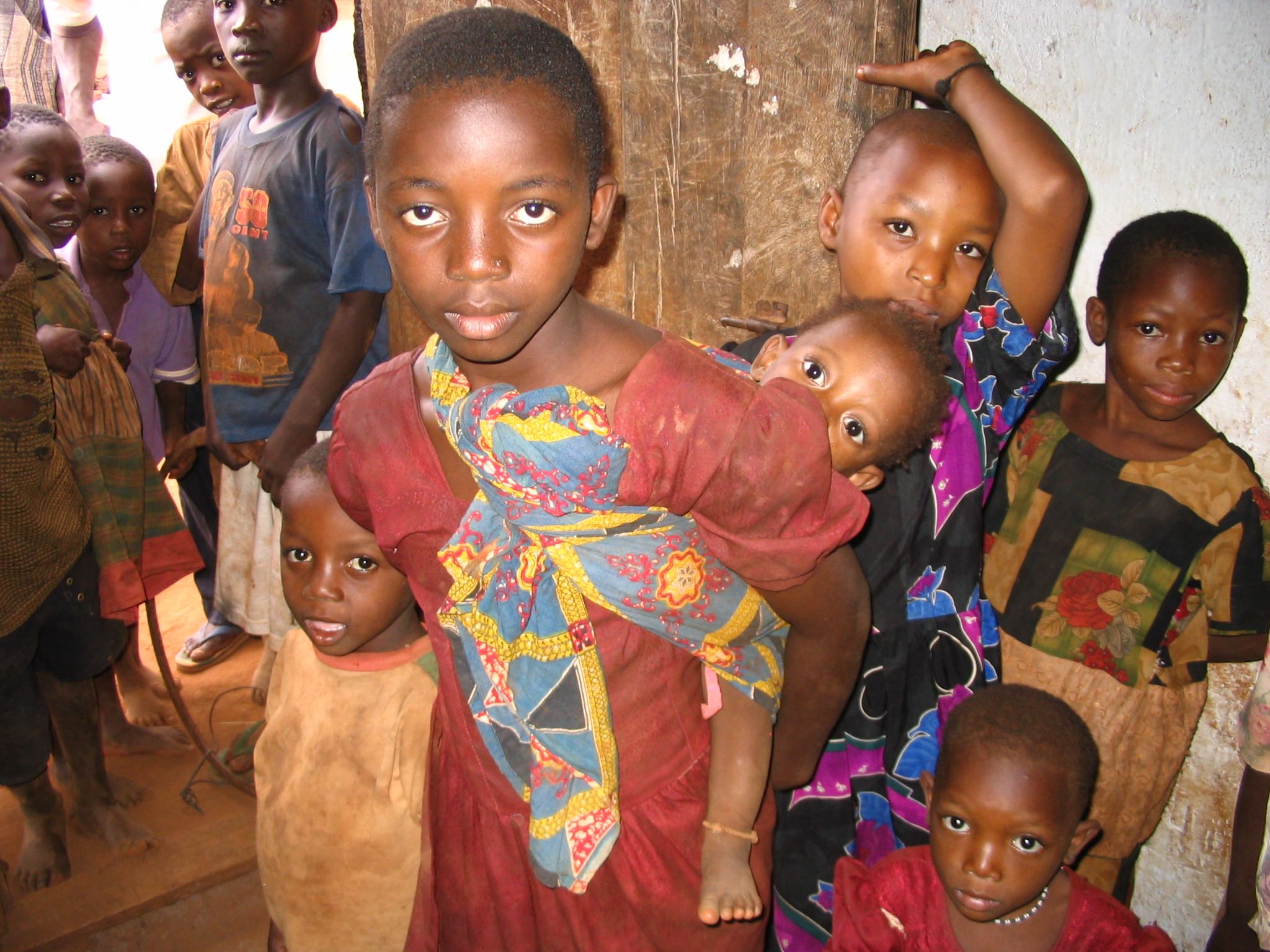
- | April 2020 |
Smarter Futures partner the Food Fortification Initiative (FFI) has published its 2019 Annual Report, which offers a wealth of information. The general sections address the rationale for fortification, its anticipated effect on the health of women and children, and the different stages of planning and implementing a national fortification programme. While FFI works worldwide, its activities in Africa are carried out under the Smarter Futures umbrella.
In 2019, FFI worked in 21 countries across four regions: Africa, Asia-Pacific, Europe, and South Asia. Using maps, they show their actions and potential reach, including their Smarter Futures work done in Africa. Members of our partner the International Federation for Spina Bifida and Hydrocephalus (IF), were involved in the grassroots Pull Strategy in Uganda and Malawi, to advocate for and monitor food fortification. This strategy is funded by Smarter Futures partner GAIN.
FFI’s 2019 Annual Report also provides detailed information on global progress in fortifying grains worldwide, the way the global estimates are calculated, as well as extensive maps for each of the three grains, wheat, maize and rice. The full report can be found on FFI website.
- | October 2019 |
On 25 October 2019, Smarter Futures’ partner the International Federation for Spina Bifida and Hydrocephalus (IF) celebrated World Spina Bifida and Hydrocephalus Day with its members, partners, and the general public. For IF, this was an extra special event, as the day coincided with its 40th anniversary. Founded by people with spina bifida and hydrocephalus (SBH) and their families in 1979, it has grown over the years from a voluntary association into a professional disabled people’s organisation (DPO) with global coverage, democratic structure and transparent and accountable processes.
To mark the day, video interviews were published with the IF Presidents Margo Whiteford, Pierre Mertens (1995-2013), and Björn Rundström (1979-1995).
Spina Bifida and Hydrocephalus associations and individuals around the world organised events and used social media to help raise awareness and increase understanding about spina bifida and hydrocephalus and to promote the rights of people living with these conditions.
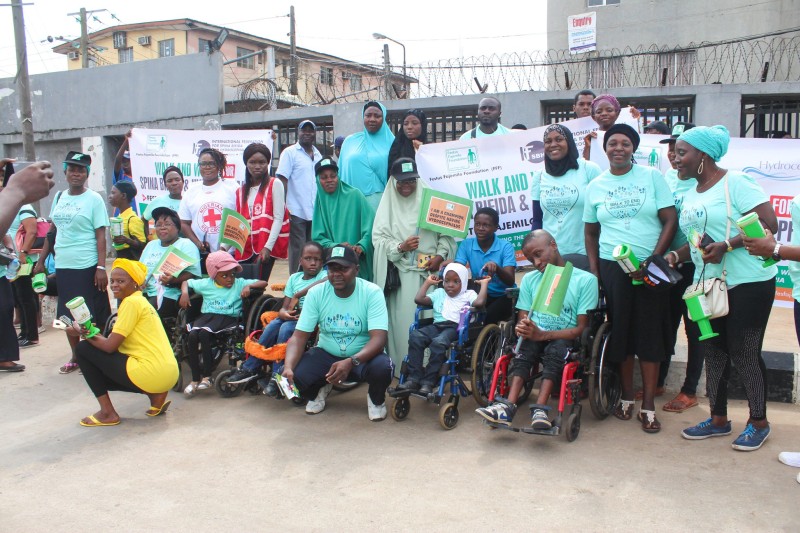
- | February 2019 |
On February 26-27, the Smarter Futures Steering Committee held their face-to-face meeting in Hamburg, Germany, hosted by partner Mühlenchemie. The second day of the meeting took place at their FlourWorld Museum Wittenburg. Participants discussed the current status of fortification programming in each country in Africa led by FFI Deputy Director Laura Rowe, FFI Director Scott Montgomery presented on scaling up rice fortification in West Africa, Claudio Benvegnu from Nouryon walked through a brief history of AkzoNobel, the new company Nouryon, and their NaFeEDTA product, which was followed by a discussion on the need for global guidelines for quality NaFeEDTA.
IF Secretary Lieven Bauwens led a discussion on the extremely high rates of neural tube defects (NTDs) Ethiopia is experiencing. Current fortification efforts, which provide folic acid (along with other nutrients) through wheat flour, have only been voluntary to date with a standard approved by the government in 2018. The group discussed the current recommendation by Dr. Godfrey Oakley to add folic acid to Ethiopia’s iodized salt. A meeting will be held in April with the government in Addis to explore this and other suggestions.
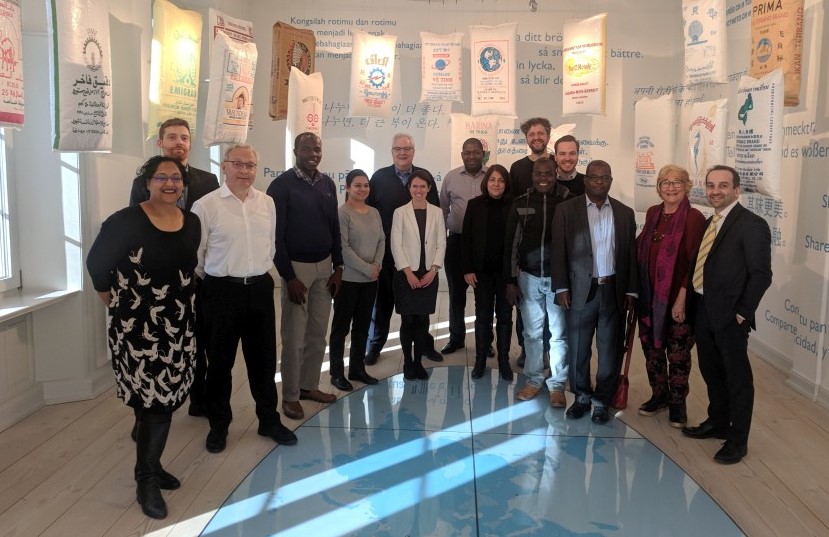
- | January 2019 |
2019 marks the 10-year anniversary of the Smarter Futures partnership in which Nouryon collaborates with the International Federation for Spina Bifida and Hydrocephalus, Helen Keller International, and the Food Fortification Initiative to improve and increase availability of fortified wheat, maize flour and rice that meets quality and nutrition standards in Africa.
The aim of the partnership is to improve the health of women in childbearing age, adolescents (especially girls) and younger children in Africa who suffer greatly from iron and folate deficiency. The most efficient way of preventing and treating iron deficiency anemia is through fortification of food products with vitamins and minerals that can be readily absorbed by the body. Folates are essential to prevent birth defects. Nouryon can provide one of these vital ingredients, an iron compound, as ingredient to enrich wheat and maize flour. Together with our partners we provide technical support & training to facilitate prevention measures, thereby improving the quality of life for those facing these challenging circumstances.
Did you know?
Nouryon was the first industry and founding partner to Smarter Futures. We are incredibly proud of our long-lasting partnership and are pleased to see that we have successfully expanded Smarter Futures to connect with even more partners.
We strongly believe in the power of working together as partners to truly make a difference in Africa.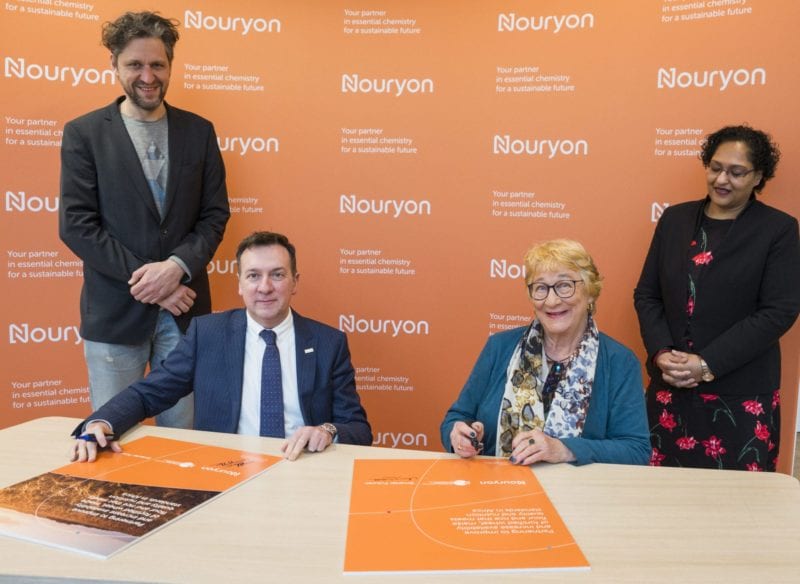 2019 signing ceremony with representatives from Nouryon and the International Federation for Spina Bifida and Hydrocephalus (IF) to reconfirm their partnership. From left to right: Lieven Bauwens (IF), Alberto Allegro (Nouryon), Anna Verster (IF) and Juliana Ruparelia (Nouryon)
2019 signing ceremony with representatives from Nouryon and the International Federation for Spina Bifida and Hydrocephalus (IF) to reconfirm their partnership. From left to right: Lieven Bauwens (IF), Alberto Allegro (Nouryon), Anna Verster (IF) and Juliana Ruparelia (Nouryon)
- | November 2018 |
In 2017, a Technical Consultation was spearheaded by the Micronutrient Forum, with support from the Bill & Melinda Gates Foundation, to advance the neural tube defects (NTDs) prevention in low- and middle-income countries through improved folate status in women of reproductive age. A group of international experts from a wide range of disciplines produced a roadmap for global action on reducing the risk of NTDs world-wide. The findings of the Technical Consultation were published in July 2017. Now this year, Nutrition International has produced a Knowledge Brief with a summary of the findings and the roadmap for action. Also, clear take away messages are outlined for decision makers, researchers and the public.
Smarter Futures partners the Food Fortification Initiative (FFI) and the International Federation for Spina Bifida and Hydrocephalus (IF) were both involved in the Consultation Review Process and FFI Director Scott Montgomery, FFI Communications Coordinator Sarah Zimmerman and IF Secretary General Lieven Bauwens were acknowledged for the inputs and information they provided. In addition, Scott Montgomery, Lieven Bauwens and FFI Africa Network Coordinator Ronald Afrida contributed to producing the Knowledge Brief.
- | October 2018 |
From October 8-10, 2018, the Southern African Development Community (SADC) and the Ministry of Health in South Africa, with support from UNICEF and Smarter Futures, hosted the Regional Consultative and Capacity Building Workshop on Strengthening Food Fortification Programmes: Monitoring and Surveillance Systems in Johannesburg. This workshop provided SADC Member States with an opportunity to consult and share lessons on the application of the previously learned quality assurance and quality control (QA/QC) approaches with regard to food fortification, within the SADC context.
During the workshop good practices were shared related to food fortification regulatory monitoring, and the SADC secretariat introduced its efforts to develop regional food fortification minimum standards. Participants also received information about monitoring and surveillance tools such as FortifyMIS and FORTIMAS. Further objectives, additional information, the agenda and a full report can be found on the website of the Food Fortification Initiative.
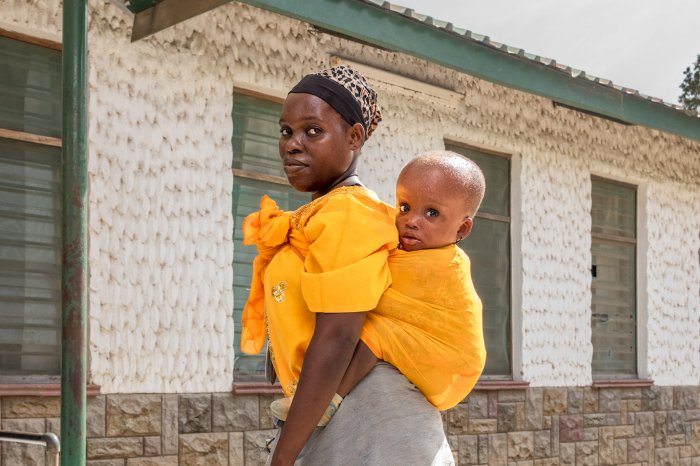
- | August 2018 |
On behalf of the World Health Organization (WHO), FFI’s Training and Technical Support Coordinator Quentin Johnson presented a cost-benefit analysis for flour fortification in Sudan. A modelling tool was used, which was especially designed to make the economic case for wheat flour fortification.
WHO Representative Dr. Naeema Al Gasseer stated that the study result has demonstrated that investing $1 in wheat flour fortification has the potential to return $15 to the economy of Sudan. She further explained that this is due to improved cognitive ability in children and future productivity and improved working performance in the current adult population. The addition of folic acid to flour will help to reduce the incidence of neural tube defects in newborns.
Quentin Johnson said “This is the first time that I have seen three ministers of the government of the country publicly support the implementation of flour fortification in the same meeting“.
- | June 2018 |
A new study looks at the readiness of selected national laboratories to test fortified foods and the accuracy of their results. Dr. Philip Randall, a senior technical expert in food quality and safety, did take on this endeavor in 2016-2017.
The capacity of laboratories to measure fortified foods was assessed by how many signed in to participate in the study compared to how many managed to deliver the results in time. The samples used in this study included key staple foods such as wheat and maize flours, sugar, edible oil and table salt. The micronutrients measured were vitamin A in oil, iodine in salt, vitamin A in sugar and iron with vitamin A in wheat and maize flours.
The study has been supported by Global Alliance of Improved Nutrition (GAIN) and funded by The Government of The Netherlands. This BioAnalyt article offers a quick look into key learnings and recommendations of the study.
- | February 2018 |
On February 15th, the European Commission, International Cooperation and Development, hosted a lunchtime conference ”Food Fortification: Scalable approaches to prevent micronutrient deficiencies in populations’‘ at its External Cooperation InfoPoint in Brussels.
Presentations were made by Anna Verster, Senior adviser on food fortification and Smarter Futures project coordinator, Saul Morris from GAIN and Paulus Verschuren from HarvestPlus. They discussed the key factors and global experiences in effective and sustainable implementation of biofortification, large scale flour/rice fortification, and fortified complementary foods, as public health interventions.
Food fortification aims to contribute to reduction of the prevalence of micronutrient deficiencies. Reducing folic acid deficiency through large scale food fortification with this essential vitamin can significantly contribute to reducing the prevalence of neural tube defects worldwide. Anna Verster, on behalf on Smarter Futures, highlighted the work done by IF in promoting folic acid fortification to reduce the incidence of neural tube defects. Her presentation is available here.
- | January 2018 |
31st December 2017 marked the end of the current Smarter Futures project. We have submitted a request for funding for the coming 4 years to continue working with you. As many of you have noticed, we are currently undergoing an evaluation to see what are the Smarter Futures strengths and weaknesses and where we should focus our efforts in the coming years.
The Smarter Futures team herewith would like to express its heartfelt gratitude to all of you, partners, country participants, industry participants who agreed to be part of the evaluation process. Many of you have been interviewed, have participated in the online survey and have in other ways contributed to the process. THANK YOU SO MUCH!!! We will keep you posted and hope to soon share with you our 2018 work plan.
HAPPY FORTIFIED 2018!
Check out our News Archive for older updates.


